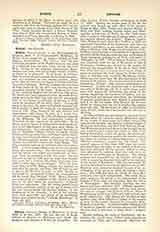

Giffard, WILLIAM, second Norman Bishop of Winchester from 1100 to 1129. Little is known of his history anterior to his episcopate, except that he was successively canon and dean of Rouen, and ably filled the office of chancellor to William the Conqueror (d. 1087), William Rufus (d. 1100), and Henry I. Since the death of Bishop Walkelin in 1098, no appointment had been made to the See of Winchester during the remaining two years of the reign of Rufus, and the revenues were appropriated by the king. The very first act of Henry I (Stubbs, “Const. Hist.”, Oxford, 1891-5, I, 329), after his election as king at Winchester, in August, 1100, was to give a token of his goodwill to the Church by filling the See of Winchester, and he caused William Giffard, who was still only a deacon, to be duly elected bishop. Henry may have wished to provide himself with a strong supporter in the episcopal body, but, from the first, William would appear to have realized that the points at issue between the king and the Church had become part of the great European quarrel of investitures, and declined to accept the pastoral staff from the king’s hands. At the moment, the support of churchmen was necessary to assure Henry’s position; he was too prudent to force the acceptance of the sacred symbol, and Giffard was immediately invested with the temporalities of the see. It only remained to arrange for his consecration. Meanwhile St. Anselm had returned from exile, and, strengthened by the decision of the council held at the Vatican in 1099, declined to become the homo of a layman.
An uneasy time followed, and embassies were sent to Rome. As bishop-elect, Giffard assisted at the council held at Westminster, September 20, 1102. In spite of his agreement with Anselm, Henry invested the Bishops-Elect of Salisbury and Hereford, and requested Anselm to consecrate them. Anselm was willing to consecrate Giffard, but in spite of the king’s repeated insistence declined to consecrate the others. Gerard of York having undertaken to do so, one of the bishops-elect returned his crosier; the consecration ceremony of the remaining two had already begun when Giffard, conscience-stricken, declined to take further part in it. The king failed to intimidate him and he was sent into exile, and his goods confiscated. He had a constant friend and adviser in St. Anselm, and when the latter set out for Rome in April, 1103, Giffard went with him. Anselm’s long stay at Lyons began about Christmas, 1103. In the meantime Giffard had been allowed to come back to England, for in 1105 he signed, together with the bishops, the petition begging Anselm to return. Eventually a compromise was effected, Anselm returned August 1, 1107; the realities of feudal homage were retained, but the special form of the gift of ring and crosier was given up by the king. Giffard, who had been ordained priest quietly the day before, was consecrated by Anselm on August 11, 1107.
He regained Henry’s confidence and acted for him in several matters of ecclesiastical interest. As Bishop of Winchester one of his first duties was to act as chief commissioner in the completion of the Domesday Record of Winchester, that royal city having been omitted from the Domesday of the Conqueror. In 1110 he negotiated with the king and the community the removal of the so-called “New Minster” (or St. Grimbald’s Abbey) founded by King Alfred, which stood in very inconvenient proximity to the cathedral on the north side, to a new site outside the city, under the name of Hyde Abbey.
Eventually this led to serious difficulties with the monks of the cathedral community, in consequence of the bishop’s having alienated certain revenues which they conceived to belong to them. The difficulty culminated in 1122 in a strange symbolical pageant by the monks, and the interference of the king. Peace was made, and the bishop grew more and more attached to the community, spending most of his time among them, taking his meals with them, wearing the cowl, and eventually dying in their infirmary. The Canons Regular of St. Augustine were welcomed to England by him and a home was found for them at St. Mary Overy’s (now St. Savior’s) in Southwark; near their stately church he built the town-house of the Bishops of Winchester. To him also belongs the honor of having given a first home in England to the monks of the Cistercian Order, by establishing, in November, 1128, the abbey of Waverley, near Farnham, in Surrey, a filiation of L’Aumone in the Diocese of Chartres. He died on January 25, 1129, and was buried in the nave of his cathedral church near his predecessor Walkelin.
EDWARD MYERS

